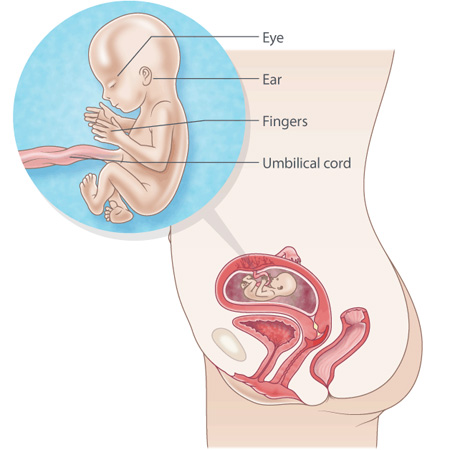
Pregnancy at 15 Weeks: A Comprehensive Guide
Introduction
Pregnancy is a transformative journey that brings about a myriad of physical, emotional, and hormonal changes. At 15 weeks, you are well into your second trimester, and your body and baby are undergoing significant developments. This comprehensive guide will provide you with an in-depth understanding of what to expect during this pivotal stage of your pregnancy.
Physical Changes
- Uterus Expansion: Your uterus continues to grow rapidly, reaching the size of a grapefruit. This expansion may cause your abdomen to become more noticeable.
- Breast Enlargement: Your breasts will continue to enlarge and become tender as they prepare for breastfeeding.
- Weight Gain: You may gain around 2-4 pounds during week 15. This weight gain is primarily due to the growth of your baby, uterus, and increased blood volume.
- Skin Changes: You may experience darkening of the skin around your nipples (areolas) and a darkening line (linea nigra) running down your abdomen.
- Constipation: Increased levels of progesterone can slow down your digestion, leading to constipation.
- Frequent Urination: As your uterus expands, it puts pressure on your bladder, causing you to urinate more frequently.
Fetal Development
- Size and Weight: Your baby is now about the size of an apple, measuring approximately 4 inches long and weighing around 2 ounces.
- Facial Features: The baby’s facial features are becoming more defined, with eyes, nose, and mouth clearly visible.
- Limb Development: The baby’s arms and legs are growing longer, and fingers and toes are forming.
- Movement: You may start feeling your baby’s movements, known as quickening, around this time.
- Heartbeat: Your doctor can now hear your baby’s heartbeat using a Doppler ultrasound.
- Sex Determination: If you have opted for an ultrasound, you may be able to learn the sex of your baby.
Emotional Changes
- Mood Swings: Fluctuating hormone levels can lead to mood swings, including feelings of happiness, sadness, or irritability.
- Fatigue: Increased progesterone levels can make you feel tired and fatigued.
- Nausea and Vomiting: Morning sickness may subside for some women at this stage, while others may continue to experience it.
- Emotional Bonding: As you feel your baby move and grow, you may start to develop a stronger emotional bond with your unborn child.
Medical Care
- Prenatal Appointments: Continue to attend your prenatal appointments as scheduled. Your doctor will monitor your weight, blood pressure, and overall health.
- Ultrasound: Your doctor may recommend an ultrasound to assess your baby’s growth and development.
- Blood Tests: You may have blood tests to check for anemia, infections, and other health conditions.
- Genetic Screening: If you are at high risk for genetic disorders, your doctor may recommend genetic screening tests.
Lifestyle Recommendations
- Healthy Diet: Eat a balanced diet rich in fruits, vegetables, whole grains, and lean protein.
- Exercise: Engage in moderate-intensity exercise, such as walking, swimming, or prenatal yoga.
- Prenatal Vitamins: Continue taking your prenatal vitamins, which provide essential nutrients for your baby’s growth.
- Avoid Alcohol and Smoking: Alcohol and smoking can harm your baby’s development.
- Limit Caffeine: Limit your caffeine intake to less than 200 milligrams per day.
- Get Enough Sleep: Aim for 7-9 hours of sleep each night.
- Manage Stress: Find healthy ways to manage stress, such as exercise, meditation, or spending time in nature.
Common Concerns
- Miscarriage: The risk of miscarriage decreases significantly after 12 weeks, but it is still possible.
- Ectopic Pregnancy: This is a rare but serious condition in which the fertilized egg implants outside the uterus.
- Gestational Diabetes: This is a type of diabetes that can develop during pregnancy.
- Preeclampsia: This is a condition characterized by high blood pressure and protein in the urine.
When to Call Your Doctor
Contact your doctor immediately if you experience any of the following:
- Severe abdominal pain or cramping
- Vaginal bleeding or spotting
- Fever or chills
- Persistent vomiting
- Sudden weight loss or gain
- Blurred vision or headaches
Conclusion
Pregnancy at 15 weeks is a time of both excitement and anticipation. By understanding the physical, emotional, and fetal changes that are occurring, you can navigate this stage with confidence and ensure the well-being of both yourself and your baby. Remember to attend your prenatal appointments, follow your doctor’s recommendations, and take care of your physical and emotional health.